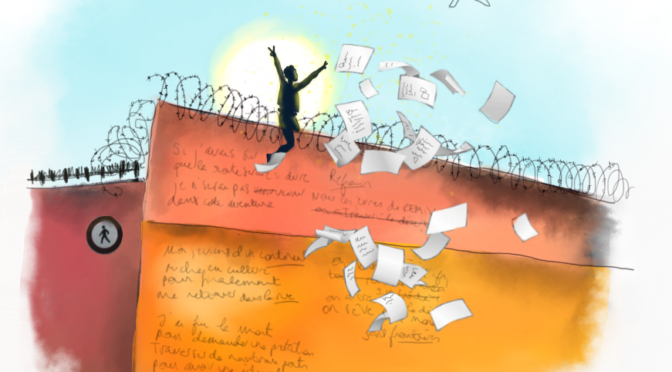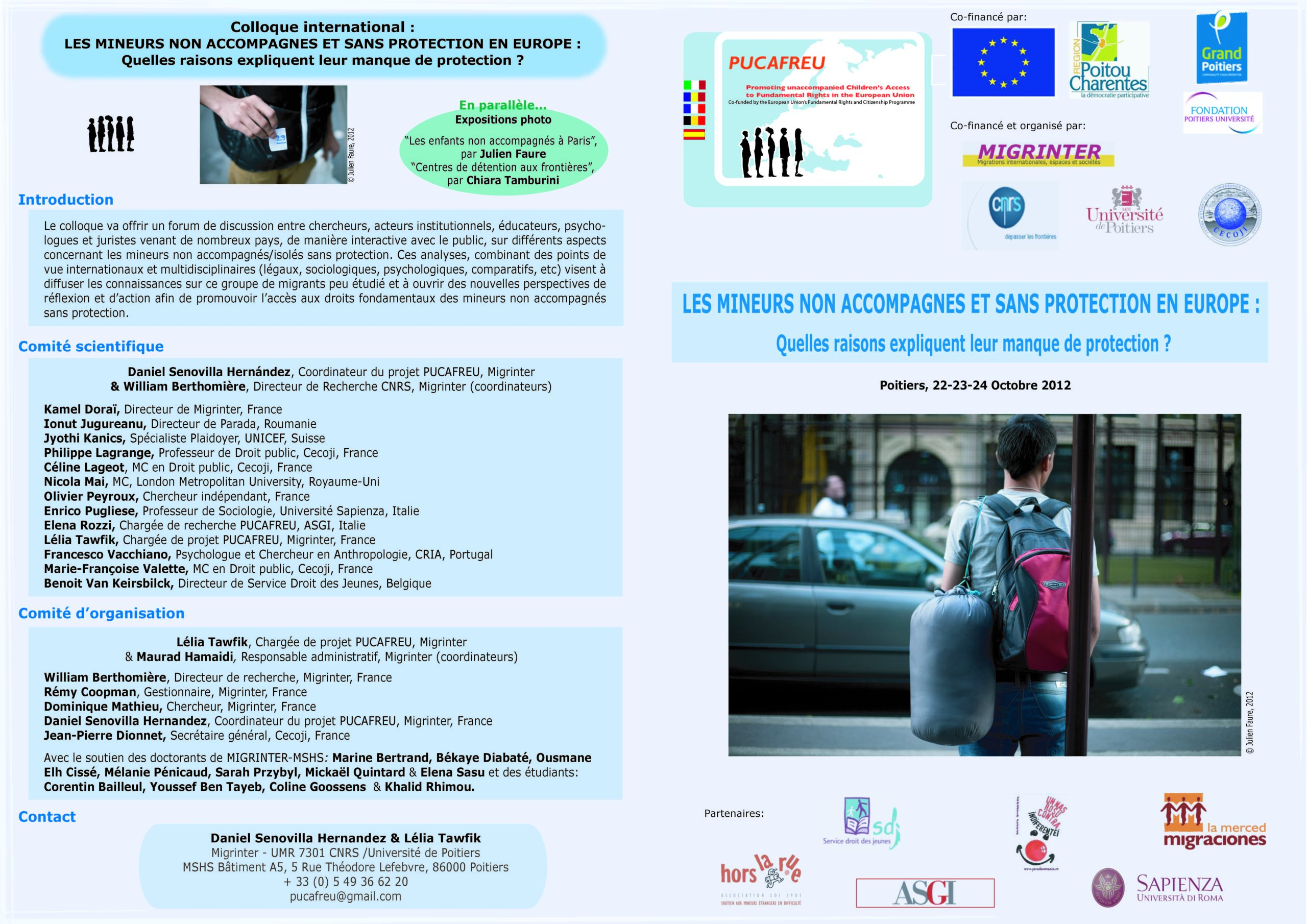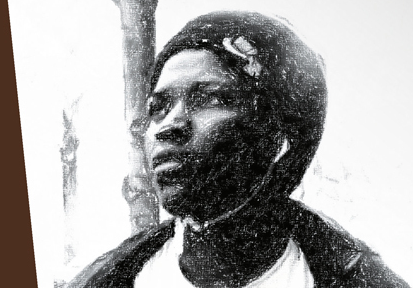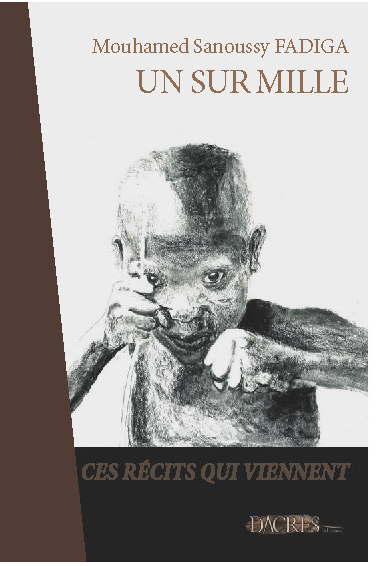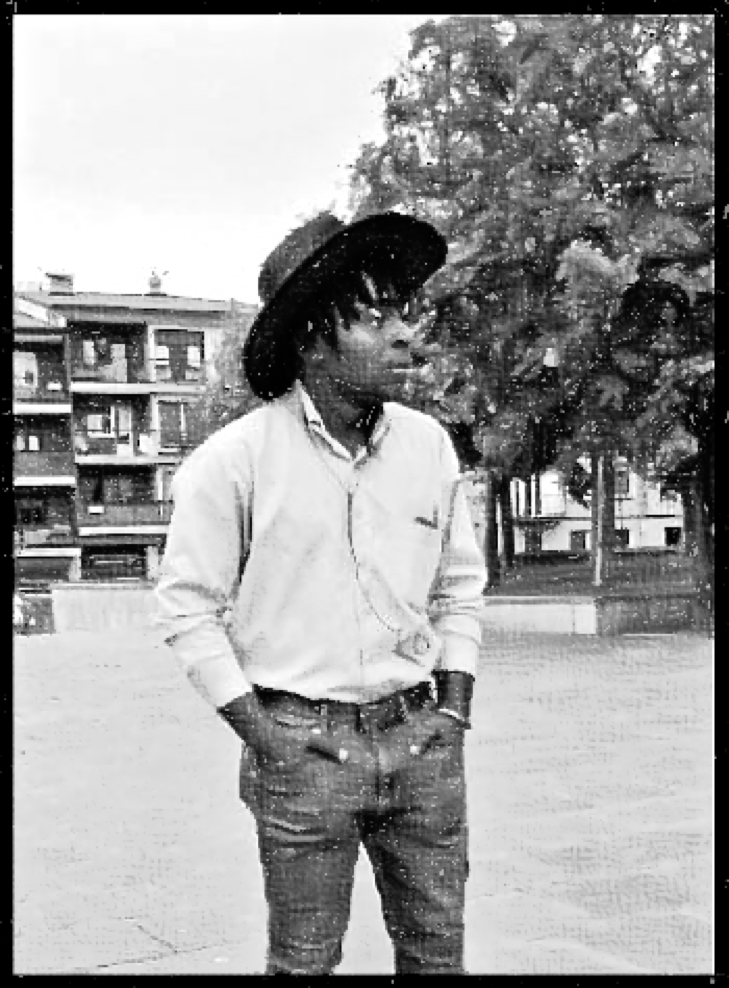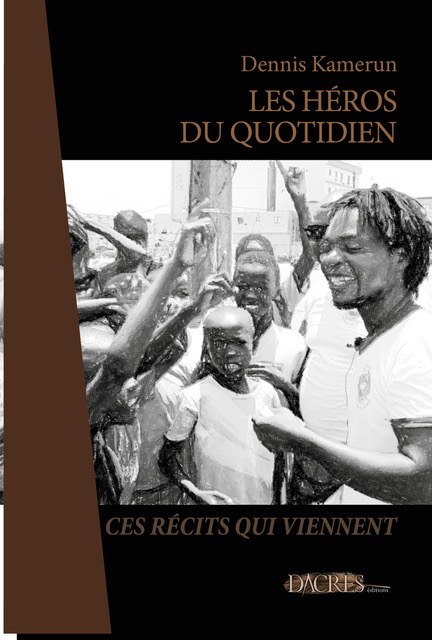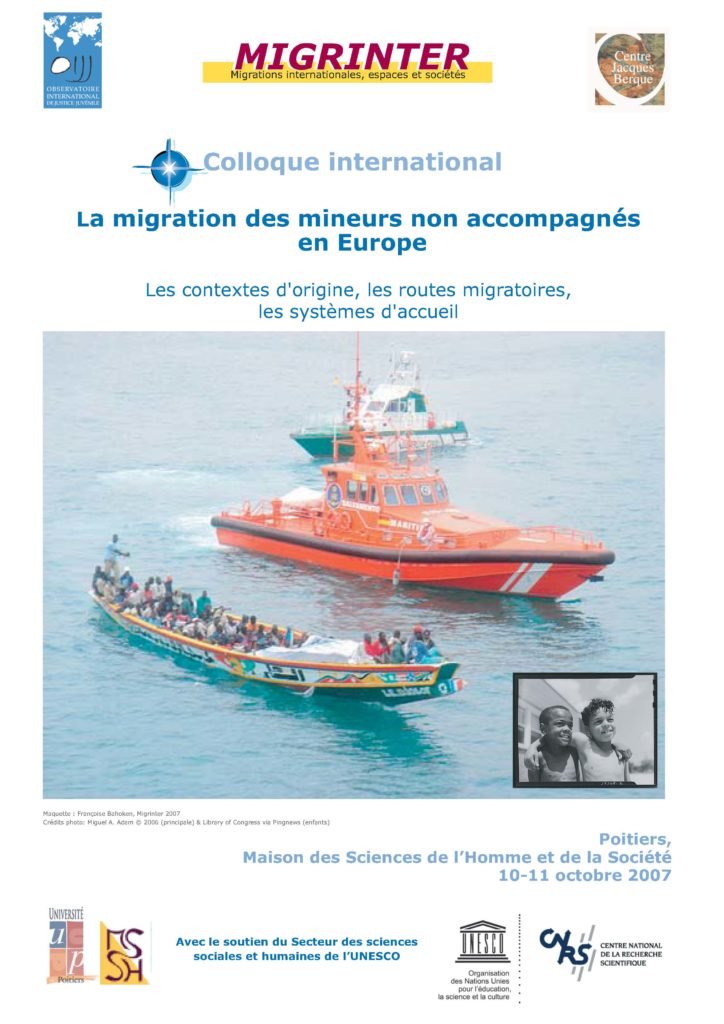
Conference October 2007
The Conference entitled « The Migration of unaccompanied children in Europe : the contexts of origin, the migration routes, the reception systems » took place on the 10th-11th October 2007 at the Maison des Sciences de l’Homme et de la Société at the University of Poitiers.
This conference was organised by the research laboratory MIGRINTER and the International Juvenile Justice Observatory with the participation of the Jacques Berque Center for the studies of Human and Social sciences in Morocco and the support of the Social and Human sciences section of UNESCO.
Over the two days, 43 papers were presented (24 in the plenary sessions and 19 in 2 series of workshops )by researchers, professionals and practitioners, involved in various associations. These participants, with ranging backgrounds and experience, tackled the numerous legal and social problems that the independent child migration involves, as much in their countries of origin as in the societies receiving them. More than 200 people coming from over 25 countries attended the conference, including the speakers, participants and the general public.
The plenary sessions were simultaneously translated into 3 languages: French, English and Spanish. Videos are available on the University of Poitiers website.
http://uptv.univ-poitiers.fr/program/la-migration-des-mineurs-non-accompagnes-en-europe/index.html

